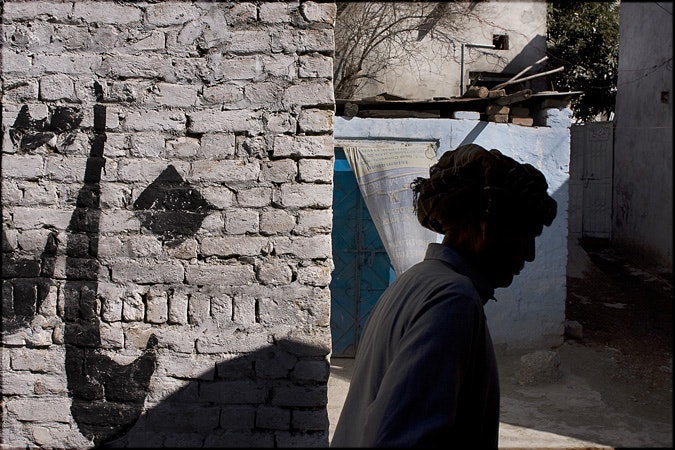The High Cost of Poverty in Pakistan
By Faisal Bari

Islamabad, 8:00 p.m.: While visiting one of the largest markets in an upscale area of the city I notice at least 12–15 women, standing alone or in pairs, trying to get clients. To say I was flabbergasted would be an understatement. All of these women were clearly young. Some of them were wearing hijabs, others had their faces covered with shawls, chaddors, and dupattas. But there was no ambiguity as to why they were there. Cars would come and stop close to a woman to start negotiations, sometimes successfully, but often not. Some of the drivers were just “window shopping” while others, the serious clients, were bargaining and examining alternatives.
This is the capital of Pakistan, at dinner time in a very public area. Plenty of other cars drive by and families are all around. Over the last year, I had seen one or two women occasionally in this area before, but this last Saturday night was a shocker.
What is happening in Pakistan? Is poverty and inequality forcing people to desperation? And what are we, as a society and polity, doing about it?
Another day in the middle of the afternoon, not too far away from this market, I spied a very old man walking along the road. He had a white beard and was bent both at the waist and at the neck, and carried a load of jharoos (mops) on his head and prayer mats under his arm. He was too old to be working. And much too old to be toiling under the hot afternoon sun. But clearly he had no option.
At a local gym in Islamabad one of the coaches tells me that that his children passed their final exams with flying colors. I could see that he was very proud: “They have gone to the next class. I have to buy new books now.” He was not asking me for help. But I could tell that the books could only be purchased at a great cost to the family. The father already has two jobs. What more can he do if even after holding down two jobs he is unable to meet the basic needs of his children and family?
One of the local universities, one of the best in the country, is facing dire budgetary constraints and has had to fire a couple of dozen people, most of the administrative and clerical staff fear that deeper cuts are on the way. Those who still have their jobs are petrified. They rely on their salaries for monthly expenditures and do not have any savings to sustain them through a period of unemployment. There is also the fear that given the economic conditions of the country, a new job will not be easy to find.
Many of the administrative and clerical staff dream of the chance to work outside of Pakistan, mainly because the needs of their families are hard to meet through a Pakistani clerical salary. And the stories of those who have been able to find work in the Middle East, or England the United States, or Canada sound promising. Poor working conditions, in some of these places, and ambiguities regarding immigration status are not a deterrent. In fact, many Pakistanis have assumed significant risk—some even dying—in their attempts to be smuggled into these countries. But it seems that each one is more will than the next to make sacrifices for the sake of their families. And of course the opportunities, especially legal ones, are far fewer than the number of people seeking them.
A friend, who is a doctor at a public hospital in Lahore, told me that some of his patients are so poor that they must sacrifice their limbs as they cannot afford the operation or specialized surgical inserts. In fact, the hospital staff contributes to a common fund to help the most deserving of their patients even though they themselves can hardly afford to do so. The state, despite the fact it is their responsibility, gives little in terms of medicines and other equipment. Ultimately it is impossible to help even a fraction of the patients who are admitted.
A public primary school in a village outside Hyderabad is situated right next to a very large, smelly, and stagnant pool of water. There is garbage littered in and around the school. The classrooms, with no electricity supply most of the day, are hot, dark, dingy, airless and very uninviting. Yet children from nursery school to the fifth grade sit in this environment in order to get an education. Even the teachers, though qualified and trained, look almost lifeless. And it is hard to blame them. The entire school and its setting gives the impression that there is no one looking after the children and the school is functioning only as a matter of formality.
These stories do not need any comment. Pakistan is definitely facing difficult times politically, economically, and socially. From the actions against extremists, the consequences of terrorism, and very difficult macroeconomic conditions to extremely poor employment prospects, Pakistanis face an uphill battle. When we talk of these things in numbers we tend to forget there are real people behind them. These are some of the faces behind these statistics.
Faisal Bari is a senior research fellow at the Institute of Development and Economic Alternatives.